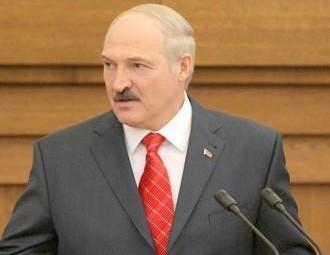Belarusan Ministry for Internal Affairs is to be reformed

Aliaksandr Lukashenka has recently signed a decree that provides for the structural change within the Ministry for Internal Affairs.
Thus, the decree that comes into force on April 1, 2013 abolishes Transport Police Directorate, reports BelaPAN. Both its functions and employees are transmitted to the Minsk city police department and the six regional police departments, according to the Belarusan leader`s press office. By this the structure of the ministry`s Main Operational Investigation Directorate will be reformed to include one more department.
The decree empowers the Minister for Internal Affairs to establish a public council under the aegis of the ministry, decide on its procedure and composition, and authorize the code of ethics of the Belarusan police force.
The decree also contains measures to "optimize" the performance of a number of health institutions under the authority of the Ministry for Internal Affairs.
In November 2012, Lukashenka directed that the State Secretariat of the Security Council oversee the Ministry for Internal Affairs` reform.
Speaking at a government conference that focused on the ongoing reform, Lukashenka suggested making the State Expert and Criminalistics Center independent from the Ministry for Internal Affairs.
He also called for transferring more than 180 highly skilled officers of the Ministry for Internal Affairs` Main Directorate for the Prevention of Organized Crime and Corruption to other criminal police units. "I general, we need such a unit but it should be more compact," he said.
Lukashenka said that he was dissatisfied with the police`s efforts to crack down on corruption. "I am sure that the entire Ministry for Internal Affairs, police, from a district police officer to the minister, knows everything about all offenses, corrupt practices," he said. "But why has it failed to act? This issue arouses suspicions in me. Not a single other security service in the country knows as much in this sphere as the police."
Lukashenka noted the need to improve the transport police system and gave instructions regarding the reorganization of the Interior Troops, warning against the existence of "redundant units."
He warned that the government would not provide any extra funding to the police in connection with the reform but promised that the money saved as a result of the reform would be left at the Ministry for Internal Affairs` disposal.
Lukashenka said that the government would continue reforming the police. "You make the first steps toward reform yourselves," he said. "We will continue this reform. This must be done by the head of state who will establish some inter-agency commission that will look at the role of the police in society, its functions and areas of responsibility".
-
03.01
-
07.10
-
22.09
-
17.08
-
12.08
-
30.09








































